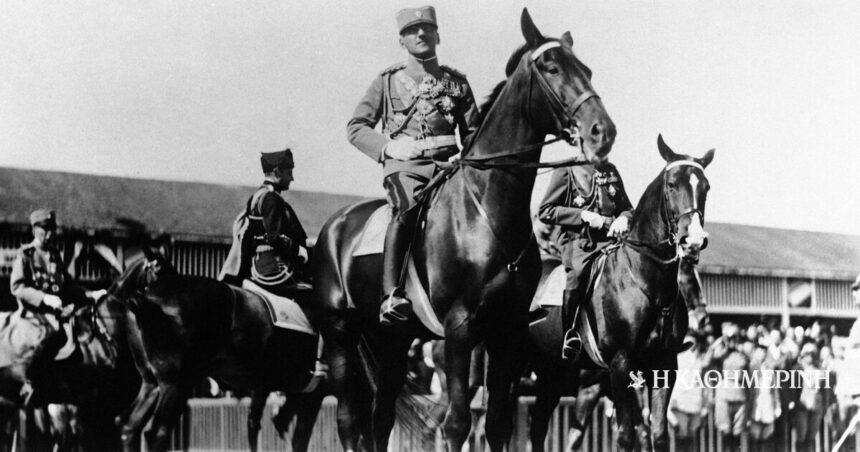Its establishment Kingdom of Serbs, Croats and Slovenesin December 1918, largely filled the void left by the dissolution of the multinational Austro-Hungary. The creation of the Kingdom was considered by the British and the French to be a historical necessity, as it constituted a buffer zone against pan-Germanism, Soviet expansionism and revisionism. Hungary and her Bulgaria.
Almost from the first moment, the new state faced major internal problems, which were related to the Croatian and Macedonian question. In foreign affairs, the Kingdom was faced with the Italian factor, which sought to dominate the Adriatic. Throughout the interwar period, a stable ally of the Kingdom of Serbs, Croats and Slovenes was France. On the other hand, the United Kingdom tried to keep a balance, supporting to some extent the Italian claims in the Adriatic.
Despite the various debates held during his period World War Ithe ideology of Greater Serbia and unifying Yugoslavia was imposed on the new state. According to these ideas, the Serbs, Croats and Slovenes were three tribes of the same people, which would constitute one nation in the new state. In practice, however, the Serbian element dominated, which mostly staffed the administrative services and the army. The Serbs, after all, suffered from the World War I victor’s syndrome, having suffered huge losses in human lives (around 1,000,000 dead) and having seen their homeland destroyed by the occupying forces.
After the death of the prime minister, Nikola Pasic, in December 1926, there followed a period of major political crisis.
After the death of the prime minister, Nikola Pasic, in December 1926, a politician who had the ability to hold the balance and secure alliances in domestic politics, there followed a period of major political crisis. Political passions and ethnic confrontations intensified in the country, culminating in shooting of Croatian party leader Stepan Radic inside Parliament by Montenegrin MP Punica Racicon June 20, 1928. The Croatian leader was seriously injured and died almost two months later, on August 8.
Realizing the bankruptcy of parliamentarianism as well as the nationally organized parties of his country, King Alexander I Karagiorgis imposed a dictatorial regime on January 6, 1929, with the support of the armed forces. The new regime proclaimed the ideology of totalitarian Yugoslavia, projecting the motto “a king, a nation, a state». By royal decree on October 3, 1929, the country was renamed Yugoslavia (or South Slavia as it is often found in Greek texts of the time, as “юг” means “South” in Serbian). In foreign policy, Alexander I’s Yugoslavia supported Alexander Papanastasi’s idea for closer cooperation of the Balkan states.
The new regime proclaimed the ideology of totalitarian Yugoslavia, projecting the motto “a king, a nation, a state».
Based on the administrative reform implemented by the regime of Alexander I, Yugoslavia was divided into nine administrative districts (banovina) out of thirty-three, which had been defined by the Constitution of 1921. The division was carried out in such a way, so that Serbs constitute the majority of the population in most Banovinas. The new division of regions, of course, altered the historical borders of the provinces from which the new kingdom was formed in 1918. In September 1931, the new Constitution was issued, which strengthened the role of the king. The king appointed and terminated the government and also appointed half of the members of the newly formed Senate.
Alexander’s reign, however, was not to last for many years. He was assassinated in Marseilles, as was the French foreign minister, Louis Bartou, in October 1934, by an agent of Ivan Mihailov’s VMRO, acting in collaboration with Ante Pavelic’s Croatian nationalist Ustaše organization. The assassins hoped that the Franco-Yugoslav alliance would weaken and Yugoslavia would be destabilized. Both Mussolini’s Italy and revisionist Hungary are believed to have been actively involved in the affair. The Yugoslav side denounced the assassination to the League of Nations, while a French court sentenced Pavelic to death in absentia as the moral perpetrator of the assassination.
Column editor: Myrto Katsigera, Vassilis Minakakis, Antigoni-Despina Poimenidou, Athanasios Syroplakis




